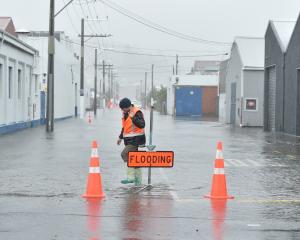Beware sustainababble, Tom McKinlay writes.
For the past eight weeks, the writer has been attending a Sustainable Living Programme course, which wound up with a focus on what can be done next to make our world a little more sustainable.
The courses are funded by the Dunedin City Council and run by sustainable living facilitator Dr Maureen Howard, who was able to hand out a long list of groups involved in charting more sustainable ways forward and resources to help get there.
It is a positive picture, of communities rallying to face an uncertain future. Peak oil, bring it on. Climate change, not if Dunedin can help it.
The reality is that change to a more sustainable footing will take some doing. The best science to hand indicates it is required.
Typically, a small number of people will lead the charge. According to the Everett Rogers ''diffusion of innovations'' theory, the innovators typically make up just 2.5% of the population.
Early adopters are the next chunk - about 13.5%. Way down the other end are the laggards, a 16% rump. You don't want to be one of them.
In the middle are the great mass of the population, 68% of us who get there in the end.
What we need to watch out for - all of us - is the sustainababble cul-de-sac, according to a report out this week by the Worldwatch Institute.
The Washington-based institute has drawn together a high-powered list of academics and other assorted thinkers to tackle the question, in a book, Is Sustainability Still Possible?
It is a sobering read.
Worldwatch president Robert Engelman warns in its opening chapter the term sustainable has become widely employed as part of ''greenwash'' marketing.
We are offered ''sustainable design'', ''sustainable cars'', ''sustainable underwear'', as if all that is required is a slight adjustment to consumer choices.
''We live today in an age of sustainababble, a cacophonous profusion of uses of the word sustainable to mean anything from environmentally better to cool,'' Engelman says.
In this sense, sustainable has come to mean ''a little better for the environment than the alternative''.
As originally coined, sustainable development is rather more than that. It is a way of living that ''meets the needs of the present without compromising the ability of future generations to meet their own needs''.
Is that achievable?
There is certainly evidence that change can happen on a global scale, Engelman says.
Some of the Millennium Development Goals have been met ahead of time. Ozone-depleting gases have been rolled back to the point where the Earth's ozone layer is now expected to repair itself.
Perhaps sustainable development will be next.












